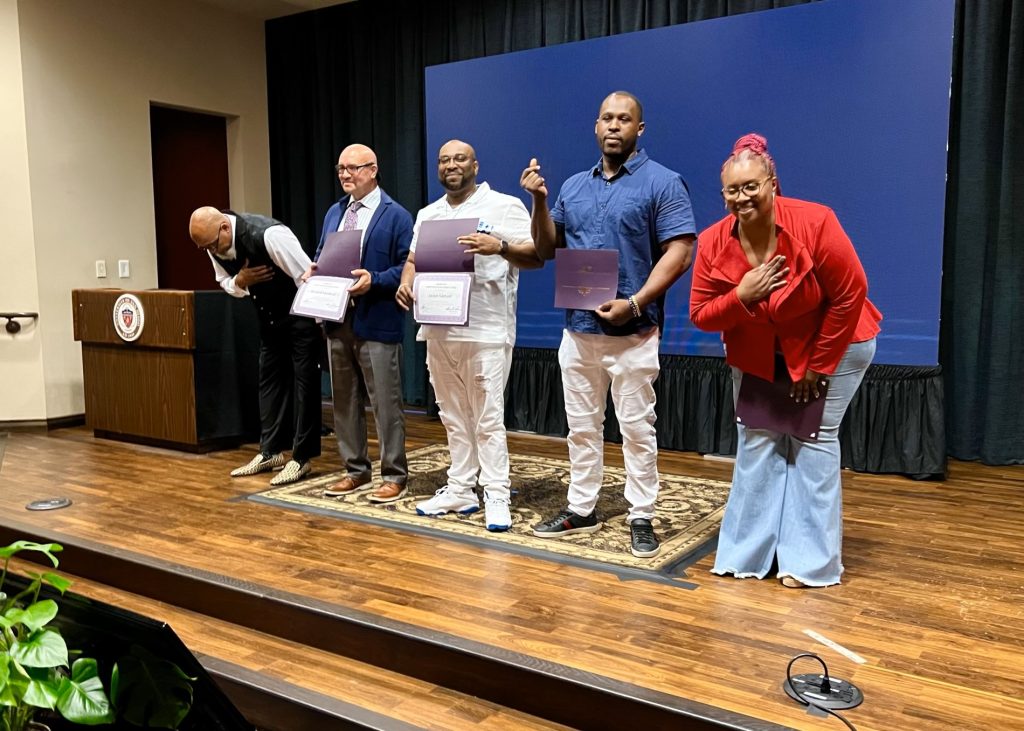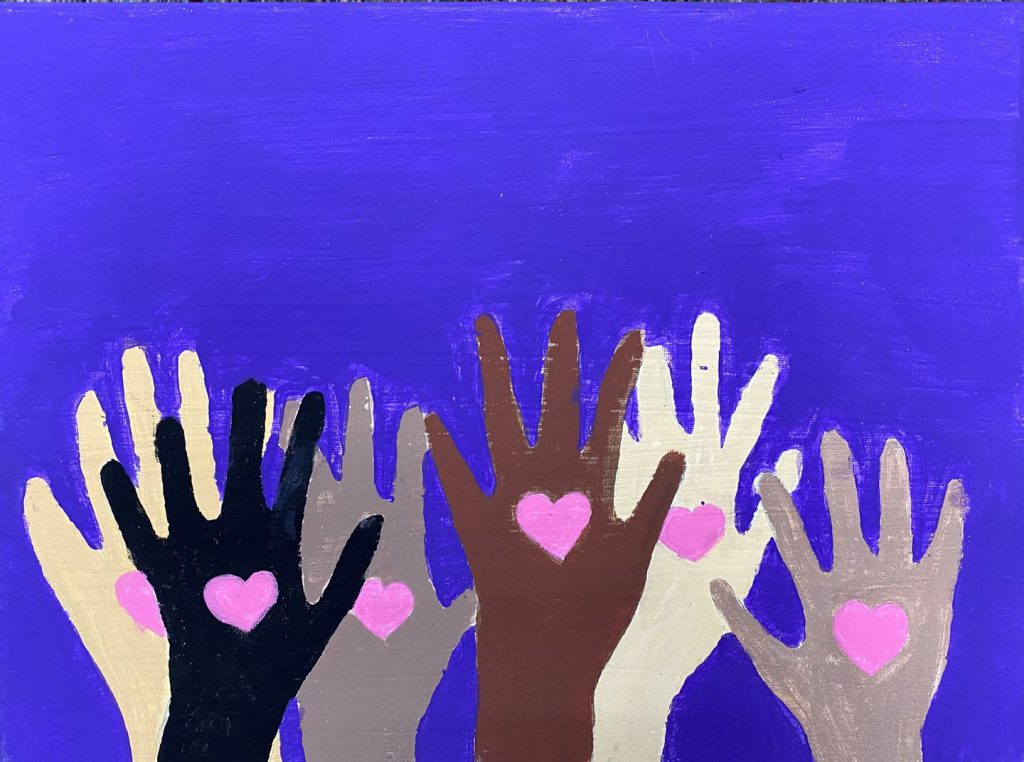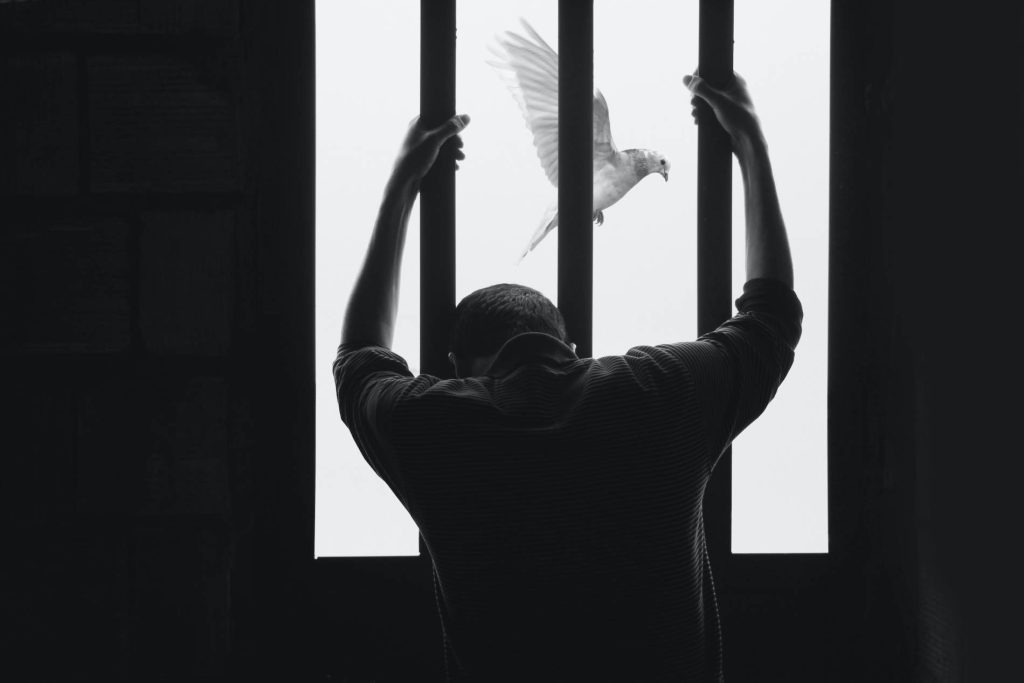SAN DIEGO — “Restorative justice is really about biblical justice.”
That’s how Dr. Robert Ehnow, director of the diocesan Office for Life, Peace and Justice, explains a concept that some people struggle to define.
As an example of what it looks like in practice, he points to the familiar Gospel account of the woman caught in adultery (John 8:1-11).
Instead of endorsing the most punitive response to the woman’s sin –– execution by stoning –– Jesus opts not to “condemn” her, but to spare her life, and exhorts her to “not sin anymore.”
“Jesus’ justice was about holding people accountable and being merciful and compassionate as much as possible within that realm of accountability,” Ehnow said.
He said that restorative justice is “what justice was intended to be, when God perfected it through mercy.”
Restorative justice has been embraced by the U.S. Conference of Catholic Bishops, who endorsed it 24 years ago in a document titled “Responsibility, Rehabilitation, and Restoration: A Catholic Perspective on Crime and Criminal Justice.”
November is observed annually as National Restorative Justice Month, while the third week of that month is designated as International Restorative Justice Week.
Ehnow contrasted restorative justice with the approach to criminal justice dominant in the United States, saying of the former, “It’s not just about ‘What happened, and who do we have to punish?’ But rather, restorative justice is: ‘What happened, and … how do we make things right, in terms of being in right relationship with each other?’”
“If you and I got in a disagreement or got in a fight … it is important to have accountability,” he said, “but it’s also far more important for us to be in right relationship with each other. How do we restore that?”
Within the diocesan Office for Life, Peace and Justice, restorative justice takes several forms. The office promotes justice through education and advocacy, as well as direct ministry.
There are 24 detention facilities, including three state prisons as well as county jails, immigrant detention centers and other institutions, located within the geographical boundaries of the Diocese of San Diego.
Collectively, about 23,000 men and women are currently incarcerated in San Diego and Imperial counties, Ehnow said, and about 15,000 of them identify as Catholic.
His office recruits and trains volunteers to minister to these inmates. Some volunteers simply deliver Catholic books and resources, while others lead religious services and Bible studies or conduct retreats inside the prison walls.
Ehnow said that, before the COVID-19 pandemic, there were almost 400 volunteers serving in this ministry.
“We’re down to about half of that,” he said, adding that new volunteers are always welcome.
Ehnow said that, before they are ordained, all candidates for the permanent diaconate are required as part of their four years of diaconal formation to spend one year ministering to the incarcerated or recently incarcerated.
The office also runs a pen pal ministry, through which about 70 San Diego-area Catholics are corresponding with inmates at California prisons, a third of whom are on death row.
Ehnow said that his office has a collaborative partnership with outside organizations, as well. One of them is Restoring Citizens, a San Diego-based provider of re-entry services that helps the formerly incarcerated transition into life outside prison.
The organization operates Kairos House of San Diego, a 31-bed facility, housed in a two-story building owned by St. John the Evangelist Parish in Hillcrest. Restoring Citizens also runs a 10-bed facility in National City, as well as a gang prevention and intervention program held in the parish hall at St. John the Evangelist.
For more information about justice-related programs in the Diocese of San Diego, visit sdcatholic.org/life-peace-and-justice/restorative-justice, call (858) 490-8375 or email rehnow@sdcatholic.org.









